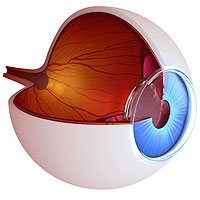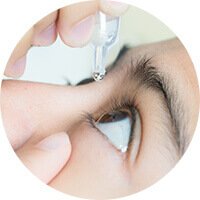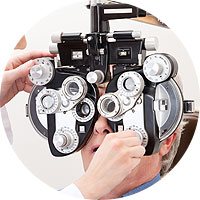
Have questions about cataracts? You’re not the only one! Keep reading for 7 of the most asked questions about cataracts!
1. What is a Cataract?
A cataract occurs when the lens of your eye clouds over. This happens over time due to proteins building up.
Many cataracts are small and cannot be seen without special equipment. But they only get worse, so knowing that you have one is an advantage.
Schedule an appointment at Eye Care Specialists for more information.
2. Do Cataracts Hurt?
Cataracts are mostly harmless. They can produce a variety of symptoms that can be a detriment to your way of life. Symptoms of cataracts include:
- Cloudy or blurry vision
- Colors looking faded or yellowish
- Halos around light
- Light sensitivity
The latter is the only symptom that may constitute as painful, as glare can sometimes result in pain.
3. Are Cataracts Common?
Cataracts are very common. The reason for this is that they are a natural part of the aging process. Assuming they live long enough, every person will have to deal with their cataracts.
Cataracts affect approximately 24 million Americans every year.
4. Are There Different Kinds of Cataracts?
Cataracts come in three varieties, depending on how they grow. The first kind of cataract is a nuclear sclerotic cataract. This kind of cataract grows in the center of the lens outwards and is the most common form of cataract.
They grow very slowly and may not be noticeable at first. The second kind of cataract is a cortical cataract. Cortical cataracts grow around the edge of the lens.
They cause fissures to form in the lens that points inwards. Cortical cataracts typically cause the most glare.
The third kind of cataract is a posterior subcapsular cataract. Posterior subcapsular cataracts grow beneath the membrane that holds the lens in place.
These are the fastest-growing kinds of cataracts. No matter what kind of cataract you may have, cataract surgery is the only way to treat them.
5. Can Cataracts Be Treated?
The only way to currently treat cataracts is through surgery. Cataract surgery is safe and fast.
Since cataracts are so prevalent, cataract surgery is one of the most common procedures to have performed.
6. Is Recovering From Cataract Surgery Difficult?
Recovering from cataract surgery is not hard at all, but it may take some time. Every patient is different, but don’t expect to be back to your normal routine right away.
During the first few weeks of recovery, you’ll need to be very careful with your eyes. Your eyes will be more sensitive and vulnerable to infection as they heal.
It’s also important to know that most surgeons perform cataract surgery one eye at a time. This means you’ll have cataract surgery on one eye and then a few weeks later, you’ll have it on the next eye if necessary.
If you only have a cataract in one eye, you don’t need cataract surgery in both eyes. Through the course of your recovery, you can begin to add in more of your routine.
It takes a few months for the average patient to be back to their normal self.
7. Will Cataracts Grow Back?
Cataracts do not “grow back”, as during the surgery the entire lens of the eye is replaced with an artificial lens. It is not uncommon for the surgery to cause a secondary cataract to form in the capsule membrane that holds the lens.
Another surgery may need to be performed, but it is just as simple and safe as the initial surgery.
Ready to find out if you may need cataract surgery? Schedule a cataract screening at Eyecare Specialists in Berwick, PA now!

















